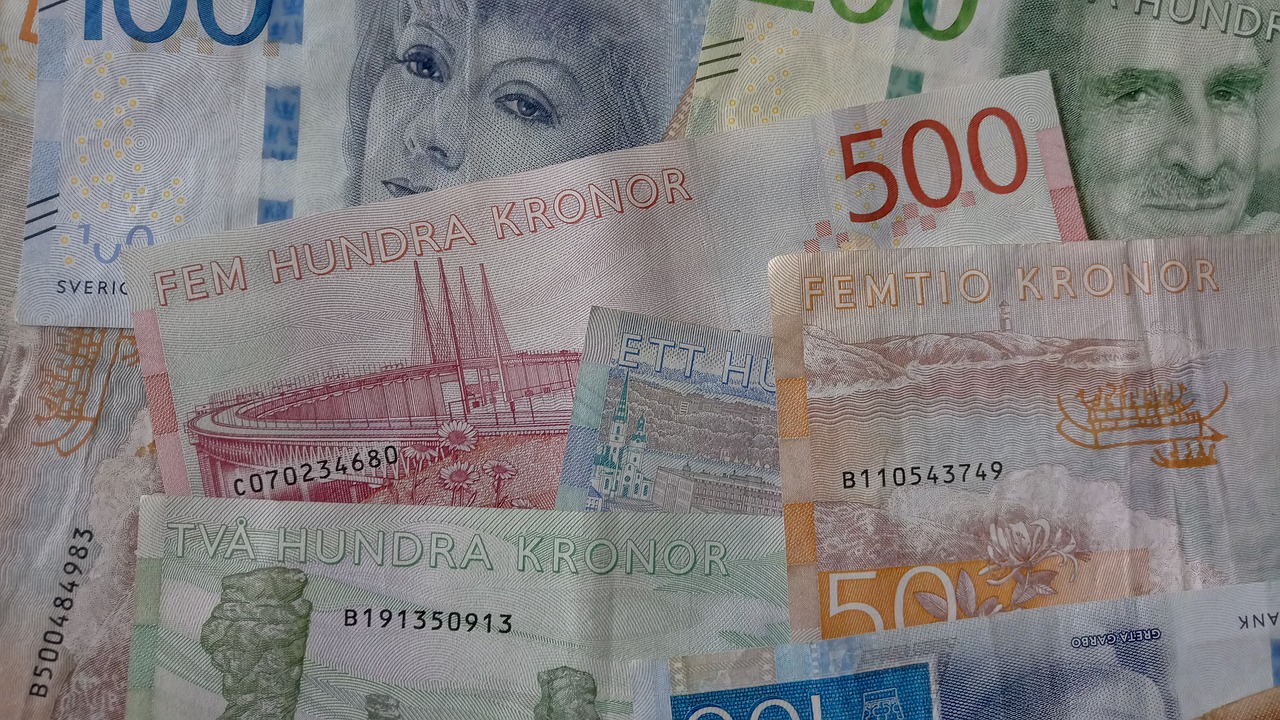Swedish Monetary Ingenuity
Sweden has been at the forefront of monetary experimentation for centuries. Not only were the Swedish one of the first European nations to print banknotes, they also adopted monetary-policy targets in the 1930s, decades before anyone else. More recently, they developed “Swedish rounding” and pioneered negative interest rates. Now they have the distinction of being the only country in the world to experience declining growth in cash in circulation.
The general decline in banknote and coin usage has inspired two new Swedish experiments. These experiments are worthwhile for all of us to learn about, since a decade or two from now we could all be in the same boat as the Swedes.
The first experiment has the Riksbank — Sweden’s central bank — piloting the e-krona, a digital version of the paper krona. For its second act, the Riksbank is advising the Riksdag, Sweden’s parliament, to adopt a radical definition of legal tender. In this article, I’ll deal with the second of these policies. In a later article, I’ll touch on the e-krona.
Let’s start out with a rough definition of legal tender. In most Western nations, the declaration that an instrument is legal tender obligates a lender to accept that instrument from the borrower in settlement of the debt. Legal tender status has typically only been extended to coins and banknotes. However, both parties to a debt can easily skirt legal tender requirements by stipulating in the initial contract that settlement be made with some sort of asset that is not legal tender, say bitcoins or gold. In retail situations, this allows shopkeepers to refuse banknotes as long as they put up a sign for their customers at the door or the till. It is this freedom of contract that explains why so many U.S. and Canadian retailers can legally refuse to accept $100 bills, and why some Swedish shops are swearing off cash altogether.
Stefan Ingves, the Riksbank’s governor, has asked the Riksdag to modify the concept of legal tender so that retailers are forced to accept banknotes. More specifically, Ingves wants providers of goods and services that are “important from a citizen’s perspective” to be subject to a cash requirement. He proposes that pharmacies, special transport services, food shops, and petrol stations be included on this list.
The Riksbank is worried that as electronic payments methods take hold, those who lack access to these new systems and depend on cash will be left behind. Bank officials are also concerned about how they are to carry out their task of promoting a “safe and efficient payment system” if cash no longer circulates. Ingves suggests that if cash’s position continues to deteriorate, then “Sweden’s preparedness” for wars or other crises will be inadequate. These are legitimate concerns.
The Riksbank may also have more selfish reasons for pushing for new legal tender laws. If retailers are obligated to accept banknotes, then it is conceivable that the quantity of banknotes in circulation will stop falling and perhaps even grow. The more banknotes in circulation, the larger the Riksbank’s profits. These profits are often considered to be useful because they help insulate the Riksbank from electoral cycles and the government’s attempts to reap short-term political gains.
The Riksbank’s proposed modification to the concept of legal tender is not entirely novel. It resembles Denmark’s so-called cash rule, originally passed in early 1984 in conjunction with the introduction of the Dankort system, a national debit card system. To prevent discrimination against cash customers in favor of Dankort card holders, the cash rule obliges all Danish retailers to also accept cash. Denmark’s cash rule is subject to limits. For instance, internet-only retailers are not held accountable and brick-and-mortar retailers can refuse cash between 10 p.m. and 6 a.m.
Obliging retailers to accept cash comes with a cost. Earlier this year, an independent Riksbank committee published a report that panned a Danish-style cash rule. Not only would a cash rule encroach on the freedom to conduct business, the committee argued, but it could also impede technological development by locking in cash’s position in an otherwise-competitive payments landscape. A cash rule could also impose significant operating costs on retailers, especially smaller ones. Cash, after all, is bulky and involves extra security risks, whereas electronic payments options are more secure.
While I agree with Ingves that there are plenty of good reasons for keeping cash around, surely the Riksbank can come up with a less heavy-handed approach for promoting usage of banknotes and coins. Here are three innovations to the paper krona that might make cash more popular with Swedes.
- No one likes coins. Removing the highest-value Swedish coin, the 10-krona coin (worth around $1), and replacing it with a bill would make Swedish currency more usable.
- The highest-denomination note is 1,000 kronor (worth around $100). Maybe it’s time to catch up to inflation and issue a 2,000-krona note (or even a supernote).
- Cash pays 0 percent whereas a deposit yields interest. Why not pay interest on cash?
These updates might not lead to a resurgence in cash’s popularity in Sweden, but they could at least slow down its demise. Cash is important. Not only does it function as Sweden’s sole permanently available back-up payments system, but it also remains the only way for Swedes to transact anonymously. If they want to preserve it, Riksbank officials need to make it better, not impose it.












